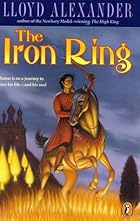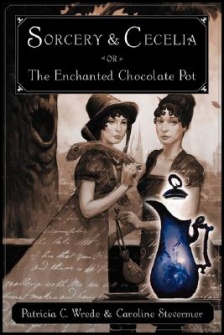
Ah, a good old-fashioned fairytale... or is it?
Kezi is a beautiful young woman, an only child in her average family in the kingdom of Hyte. Typical heroine in a fairytale, yes? Now meet her knight in shining armor: Olus, the Akkan god of wind.
Think Jepthah's Vow in the book of Judges, plus Greek immortal-and-mortal love story, plus elements of Middle-Eastern religion. And you have Ever.
Olus, at seventeen years old, is the youngest Akkan god. He's not comfortable around the other millennia-old deities, so he decides to spend some time with the mortals on earth. He travels to Hyte, where he buys some goats from a farmer and settles down to watch mortality.
There he watches the daughter of the farmer who sold him the goats: Kezi, a fifteen-year-old girl with a talent for weaving and dancing. Olus falls in love with her from afar, and soon he contrives a meeting with her. They (of course) fall in love instantly. But, when her mother falls ill, Kezi's father promises their god Admat that if Admat will spare his wife, he will sacrifice the first person to congratulate him. Kezi's mother recuperates - but, to save the life of her aunt, Kezi bursts out with congratulations to her father. Her death sentence issued, she begs Admat for thirty more days to live.
Olus, naturally, can't bear the thought of Kezi's death. He whisks her away on his winds and tells her he wants her to become immortal. She can still be sacrificed, but she'll live again. Kezi agrees, and they set out to become heroine and champion.
For the most part, I'm a big fan of Levine's work. This idea is a fascinating one, and I was sure she would be able to pull it off. But the story fell flat about a third of the way through. I'm not sure what went wrong, but I think part of the problem was lack of originality. As I mentioned above, most of us have probably heard the story a hundred times from Greek legends. With originality the idea could work, but it doesn't feel like Levine tried too hard.
Another bothersome thing was the characters. Kezi and Olus had very little depth to them. Kezi seemed nice and, in some ways, heroic. But there were times when she came over as petty, or weak, or downright rude. Olus was better (I generally like the male half of a pair more), but I had to question his intelligence at falling in love with a rather mediocre girl like Kezi.
The book is written in present tense, in first-person perspective from both Kezi and Olus. The chapters alternate between Olus and Kezi. This bothers some people, I know, but to me, it was an interesting way to write the book. The style, however, couldn't fix the disappointing ending, which, though certainly not a happily-ever-after ending, felt almost random and much too easy.
It probably sounds like I didn't enjoy Ever. I did. As a fast 'beach' read when I don't want to use too much brainpower. But if you're looking for a more substantial fairytale, I would suggest Levine's The Two Princesses of Bamarre, or Shannon Hale's Bayern series, beginning with The Goose Girl.





